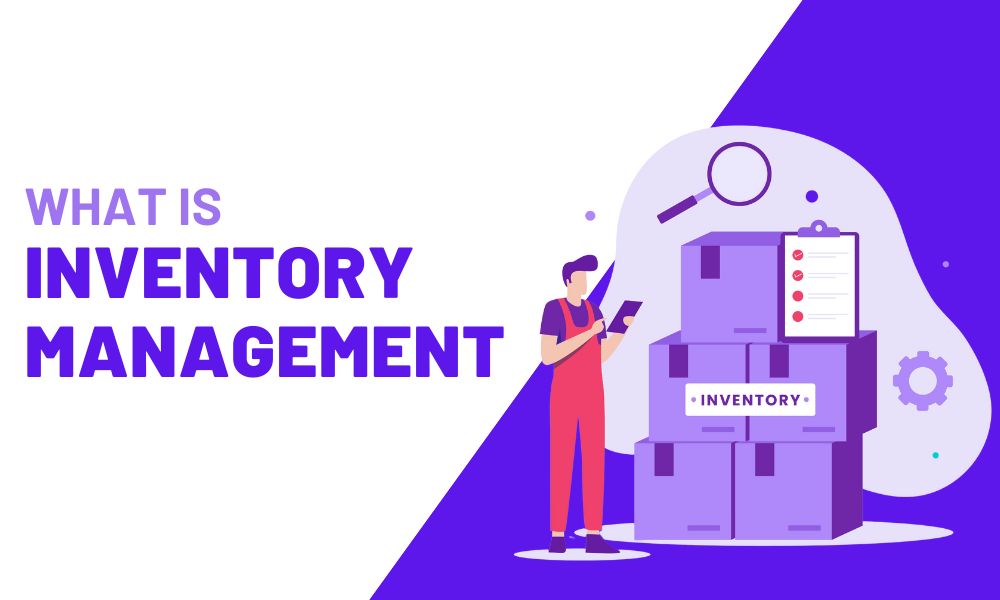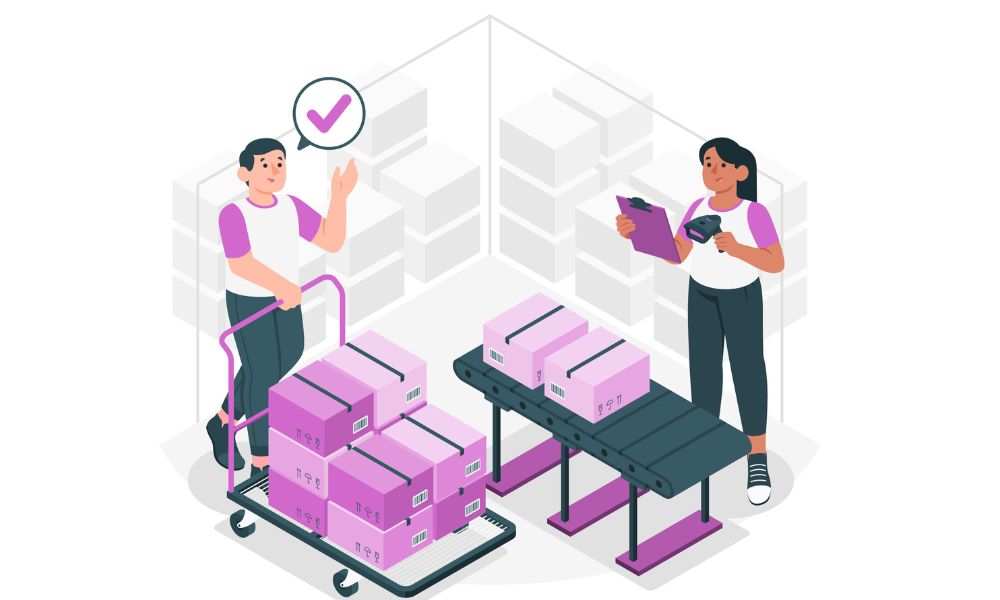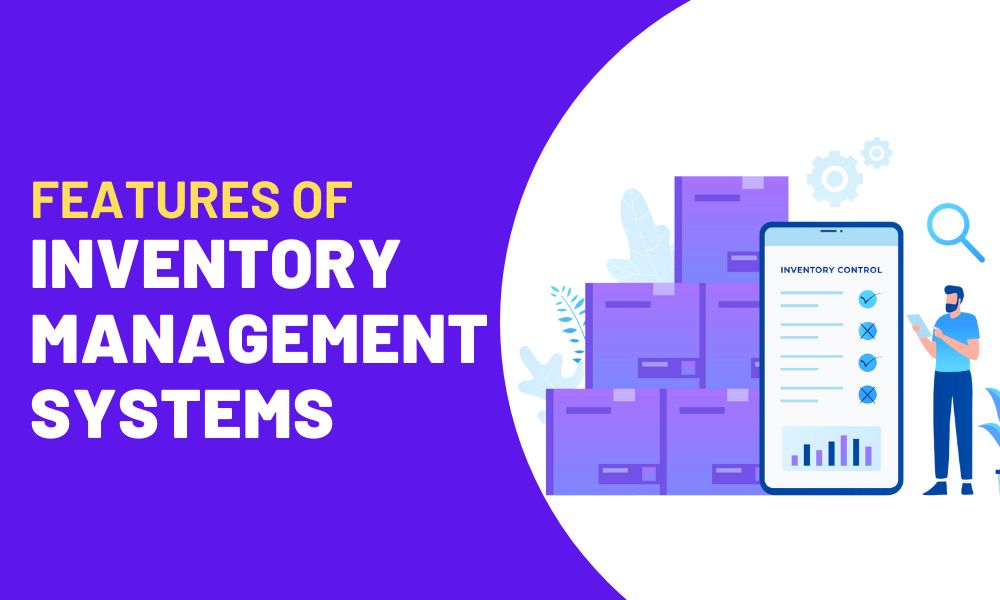Mastering Inventory Management: Optimizing Efficiency and Boosting Profits

Want to know everything about inventory management? Read the article to know everything about it and why it is beneficial.
Effective inventory management is crucial for any business that deals with products. It ensures that goods are readily available when needed, minimizes stockouts and overstocking, and ultimately contributes to customer satisfaction and improved profitability. In this article, we will explore the importance, benefits, and key features of inventory management.
We will also delve into the top ecommerce inventory management software solutions available, and provide insights on how to choose the right one for your business. By the end of this article, you will have a comprehensive understanding of inventory management and its significant role in optimizing your business operations.
What Is Inventory Management

Inventory management refers to the process of overseeing and controlling a company’s inventory of goods, materials, and products. It involves the planning, tracking, and monitoring of inventory levels to ensure efficient operations, optimal stock levels, and customer satisfaction.
It encompasses various activities, including inventory tracking, order fulfillment, stock replenishment, demand forecasting, and inventory optimization. The primary goal is to strike a balance between having enough inventory to meet customer demand and minimizing excess inventory that ties up working capital and storage space.
Effective inventory management involves:
- Inventory tracking: Keeping a record of the quantity, location, and status of inventory items in real-time to enable accurate tracking and monitoring.
- Demand forecasting: Using historical data, sales trends, and other factors to predict future demand and plan inventory levels accordingly.
- Reorder point determination: Identifying the minimum inventory level at which new orders should be placed to avoid stockouts.
- Stock replenishment: Managing the procurement process to ensure timely and cost-effective replenishment of inventory.
- Stock control: Implementing strategies to manage stock levels, prevent stockouts and overstocking, and optimize inventory turnover.
- Warehouse management: Efficiently organizing and managing the physical storage and movement of inventory within a warehouse or distribution center.
- Order fulfillment: Ensuring accurate and timely processing of customer orders, including picking, packing, and shipping.
- Inventory optimization: Analyzing inventory data, identifying slow-moving or obsolete items, and implementing strategies to optimize stock levels and reduce holding costs.
Proper IM is crucial for businesses to meet customer demand, minimize costs, maximize profitability, and maintain a competitive edge in the market. It helps businesses avoid stockouts, reduce excess inventory, streamline operations, improve cash flow, and enhance customer satisfaction.
Also Read:
Hotel Inventory Management Software
Dropship Inventory Management
Importance of Inventory Management
- Avoiding stockouts and ensuring product availability: Effective IM helps businesses maintain optimal stock levels to meet customer demand. It ensures that products are available when customers need them, preventing stockouts that can lead to lost sales and dissatisfied customers.
- Minimizing overstocking and reducing holding costs: Overstocking ties up valuable capital and storage space. With IM, businesses can track inventory levels, identify slow-moving or obsolete items, and make informed purchasing decisions to minimize overstocking and reduce holding costs.
- Meeting customer demand and improving customer satisfaction: By having the right products in stock, businesses can fulfill customer orders promptly. IM ensures that customer demands are met efficiently, leading to improved customer satisfaction and loyalty.
- Enhancing cash flow and profitability: It optimizes stock levels, reducing excess inventory that ties up capital. By having the right amount of inventory on hand, businesses can allocate their financial resources more effectively and improve cash flow. This, in turn, contributes to increased profitability.
Benefits of Inventory Management
Cost savings through optimized inventory levels
It ensures that businesses have the right amount of inventory, reducing excess inventory carrying costs and avoiding stockouts that result in lost sales. This optimization leads to significant cost savings.
Streamlined order fulfillment and improved efficiency
These systems enable businesses to track inventory in real-time, streamlining order fulfillment processes. This results in faster order processing, reduced errors, and improved operational efficiency.
Accurate demand forecasting and inventory planning

This software utilizes historical data, sales trends, and other factors to provide accurate demand forecasts. This allows businesses to plan inventory levels more effectively, minimizing the risk of stockouts or overstocking.
Enhanced visibility into inventory data and analytics
It provides real-time visibility into inventory levels, allowing businesses to monitor stock movements, track product performance, and analyze data for informed decision-making. This visibility helps identify trends, optimize stock levels, and improve overall inventory management strategies.
Also Read:
Construction Inventory Management with Software Solutions
Importance of Inventory Management Database for Businesses
Reduced risk of stock obsolescence and expiration
With IM, businesses can track product shelf life, expiration dates, and product aging. This helps prevent stock obsolescence by ensuring timely sales or appropriate actions such as promotions or discounts to clear slow-moving inventory.
Features of Inventory Management Systems

- Inventory tracking and stock control: The software provides real-time tracking of stock levels, allowing businesses to monitor inventory movements, receive alerts for low stock, and make informed purchasing decisions.
- Purchase order management: The software enables businesses to create, track, and manage purchase orders, streamlining the procurement process and ensuring the timely arrival of inventory.
- Sales and order management: This system integrates with sales channels and provides order management capabilities, enabling businesses to efficiently process and fulfill customer orders.
- Demand forecasting and inventory optimization: Advanced IM software utilizes historical data and demand forecasting algorithms to predict future demand and optimize inventory levels, reducing stockouts and overstocking.
- Reporting and analytics: This system generates reports and provides analytics on key inventory metrics, such as stock levels, turnover rates, and product performance. These insights help businesses make data-driven decisions and identify areas for improvement.
- Integration with other business systems: Inventory management software can integrate with other business systems like accounting, CRM, and eCommerce platforms, ensuring seamless data flow and enhancing overall operational efficiency.
- Barcode and scanning capabilities: Inventory management systems often support barcode scanning, enabling businesses to streamline inventory management processes, improve accuracy, and expedite stocktaking and order fulfillment.

Maximize Your Online Business Potential for just ₹79/month on Lio. Annual plans start at just ₹799.
How Lio Can Help You?
To make your dreams come true of having a business of your own and managing it nicely, Lio App can help you big time. The app lets you keep all sorts of data together in a more organized manner. You can keep records, and create tables and lists while working solo or with a team.
The many features of Lio would help you with your retail business as you would be able to maintain all data on a track that you can use at any time. If you want to upload a document, then you can do that. Know the money transactions, cash inflow, profit and loss you are making, Udhaar, list of products, services, and even the teammates and clients that you have all in one place.
Your retail business ideas will certainly become successful businesses if you go on this journey of managing your business with Lio.
Step 1: Select the Language you want to work on. Lio on Android

Step 2: Create your account using your Phone Number or Email Id.

Verify the OTP and you are good to go.
Step 3: Select a template in which you want to add your data.

Add your Data with our Free Cloud Storage.
Step 4: All Done? Share and Collaborate with your contacts.

Conclusion
Efficient inventory management is a critical aspect of running a successful business. By implementing robust inventory management practices and leveraging the right software solution, businesses can optimize their operations, reduce costs, improve customer satisfaction, and increase profitability. It is essential to evaluate the unique requirements of your business and choose an e-commerce inventory management software that aligns with your needs and goals.
Frequently Asked Questions(FAQs)
What is the role of inventory management in supply chain management?
Inventory management plays a vital role in supply chain management by ensuring the right amount of stock is available at the right time and place to meet customer demand and avoid disruptions in the supply chain.
How does inventory management impact cash flow?
Effective inventory management helps in reducing holding costs and minimizing stockouts, which in turn improves cash flow by optimizing inventory levels and avoiding excess inventory tying up capital.
Can inventory management software integrate with other business systems?
Yes, many inventory management software solutions offer integration capabilities with other business systems such as accounting, sales, and CRM, enabling seamless data flow and streamlined operations.
Is inventory management software suitable for small businesses?
Yes, there are inventory management software solutions available that cater to the needs of small businesses, offering scalable features and pricing plans to accommodate their requirements.
What are the key factors to consider when choosing inventory management software?
Some key factors to consider include the scalability of the software, integration capabilities, ease of use, reporting and analytics features, customer support, and cost-effectiveness.







